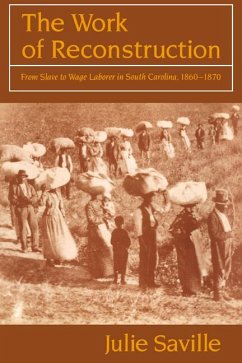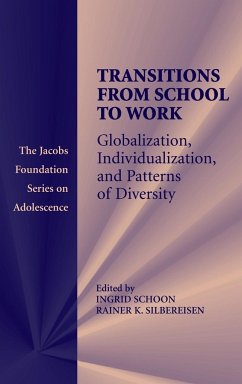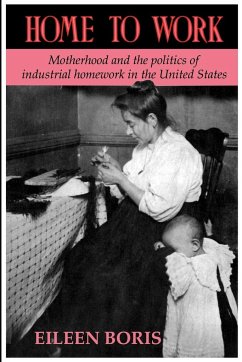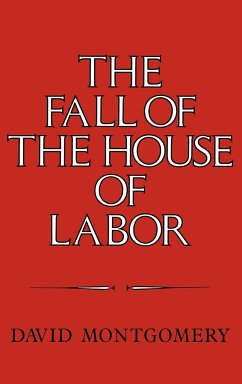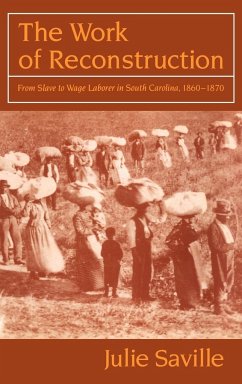
The Work of Reconstruction
From Slave to Wage Laborer in South Carolina 1860 1870

PAYBACK Punkte
59 °P sammeln!
With the abolition of slavery in the American South, the largest slave population in the hemisphere gained independence from institutional powers that had absorbed its social being into masters' and mistresses' households. Ex-slaves seized emancipation as the occasion to reclaim their persons and their labor, precipitating a social movement that linked immediate relations, family, kinship, community, labor-sharing, and mutual aid to arenas of political action. This book explores from the vantage of the South Carolina countryside the upheavals in daily life that underlay broad social transforma...
With the abolition of slavery in the American South, the largest slave population in the hemisphere gained independence from institutional powers that had absorbed its social being into masters' and mistresses' households. Ex-slaves seized emancipation as the occasion to reclaim their persons and their labor, precipitating a social movement that linked immediate relations, family, kinship, community, labor-sharing, and mutual aid to arenas of political action. This book explores from the vantage of the South Carolina countryside the upheavals in daily life that underlay broad social transformations engendered by emancipation and the fashioning of wage relations. Going beyond current discussions about the meaning of freedom for former slaves, it offers a portrait of freedpeople's actual social life that sheds light on their new relations with yeomen Republican allies. Ex-slave's projects of "grass-roots reconstruction" were a dual struggle to blunt new coercions embedded in terms of postbellum employment, and to elude the personal domination of the old order. Freedmen and -women gradually mounted public and collective repudiations of the reasoning that had supported their owners' rights to command human property. At the same time, they challenged emergent claims that subjection to landowners' management and to the discipline of an abstract market constituted freedom.





